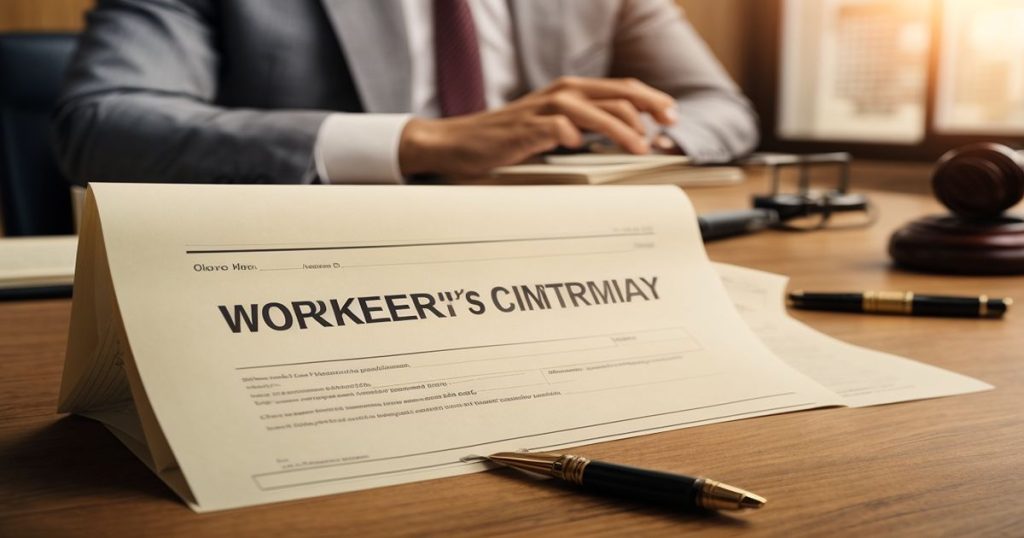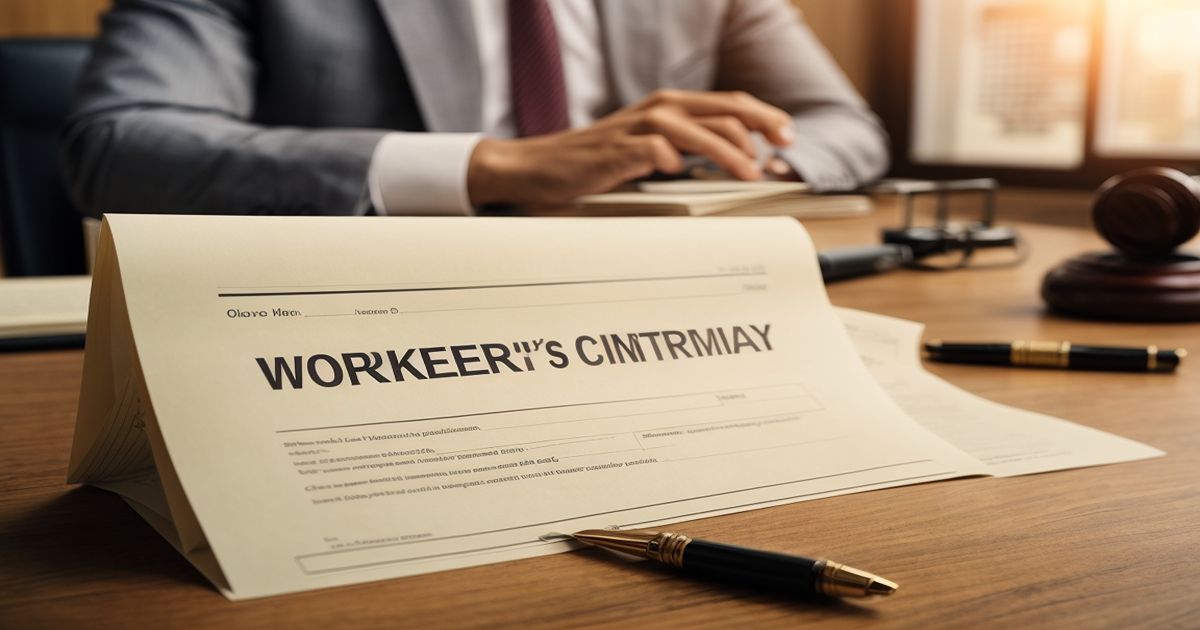
The Pros and Cons of Hiring a Workers’ Comp Attorney
Suffering a workplace injury can be difficult enough without having to navigate the complex workers’ compensation system on your own. You may be wondering whether you should hire a workers’ comp attorney to help with your claim. There are advantages and disadvantages to hiring a lawyer that are important to consider.
This comprehensive guide examines the pros and cons of hiring a workers’ compensation attorney to help you make the best decision for your situation.
What is Workers’ Compensation?
Before weighing the pros and cons of legal representation, it’s helpful to understand the basics of the workers’ compensation system.
Workers’ comp provides benefits like medical treatment and partial wage replacement to employees who are injured on the job or develop an occupational illness. All businesses are required to have workers’ comp insurance to cover claims.
When an injury occurs, the employee files a claim with the insurance company, which then investigates and determines the benefits the worker is entitled to under the law. The worker’s compensation board in each state oversees disputes in the system.
The Potential Pros of Hiring a Workers’ Comp Attorney
While you don’t necessarily need an attorney for a straightforward workers’ comp claim, there are many advantages to hiring a lawyer if your case is complex or contested:
1. Knowledge and Experience Navigating the System
The biggest benefit of hiring an attorney is having an expert on your side who understands the intricacies of the workers’ compensation system and laws in your state. An experienced lawyer has handled hundreds of cases and knows how to get the best results for injured workers.
They are familiar with the process, requirements, and timelines for filing claims, collecting benefits, appealing denials, and more. A lawyer prevents you from having to learn the system on your own during an already stressful time.
2. Assistance Communicating with Insurance Companies
An attorney acts as your representative in communicating with the workers’ comp insurance company. Rather than you having to negotiate, argue, or deal with delays from the insurer alone, the lawyer handles all communication on your behalf.
They know how to effectively communicate with insurers to get approvals and payments moved along quickly while protecting your interests. Having legal representation can prevent the insurance company from taking advantage of you.
3. Representation at Hearings
If your claim gets denied by the insurance company, having a lawyer to represent you at workers’ comp hearings is crucial. Very few injured workers have the legal expertise and experience needed to successfully appeal a claim denial without a lawyer’s help.
Attorneys know how to build strong cases, gather persuasive evidence and testimony, and present arguments before a judge to fight for your benefits. They greatly increase your chances of winning an appeal.
4. Assistance Getting Medical Treatment
Workers’ comp attorneys assist in lining up the necessary medical care and treatment programs injured workers need to recover. If you are being denied treatment by the insurer, a lawyer can file motions to get you the care you need and deserve.
5. Higher Settlements
Statistics show that employees represented by attorneys win workers’ compensation benefits at a much higher rate than those without legal help. This is because lawyers know how to properly value cases and negotiate the maximum allowable settlement.
While they take a percentage fee, you still end up with significantly more compensation in your pocket overall with the legal expertise in your corner.
6. Peace of Mind and Reduced Stress
Finally, having a workers’ comp lawyer handle your entire case allows you to focus on healing rather than stressing over paperwork, calls, and negotiations with the insurance company.
The Potential Cons of Hiring a Workers’ Comp Attorney
While the benefits often outweigh the downsides, there are some potential disadvantages to hiring a lawyer for your workers’ compensation claim:
1. Legal Fees Reduce Total Settlement
The primary drawback is that attorneys take a chunk of your total settlement as payment for their services. This contingency fee ranges from 10 to 30 percent. For example, a lawyer taking 15% on a $50,000 settlement would get $7,500.
So while you are likely to get a higher payout with attorney representation, their fee does mean you receive a smaller percentage of that total yourself. For some simple claims, the extra amount an attorney wins may not be worth the fee deducted.
2. Claim Resolution Could Take Longer
Some attorneys use aggressive legal tactics and push for trials rather than cooperating on a settlement. This “scorched earth” approach can prolong the claims process significantly compared to working collaboratively with the insurer.
The legal back-and-forth can add weeks or months to finalizing your settlement. If you just want to quickly resolve your claim, a lawyer may not accelerate that process.
3. More Scrutiny of Your Claim by Insurers
Insurers tend to look at claims involving attorneys more critically. They may order extra medical evaluations or investigations to build their defense against a potential trial. The heightened scrutiny could lead to benefits being denied that otherwise may have been approved if you did not have a lawyer.
4. Communication Goes Through Lawyer
With legal representation, all communication with the workers’ compensation insurer goes through your attorney rather than directly with you. Some applicants prefer to have control over conversations related to their claim. Going through a lawyer means putting decisions in someone else’s hands.
5. No Guarantee of Success
Finally, there is always a chance that even with top-notch legal representation, your claim or appeal could still be denied. Hiring an excellent lawyer maximizes your chances of success, but there are no guarantees under the law. You could still end up not receiving benefits in the end.
Key Factors to Consider When Deciding If You Need an Attorney
Whether to hire a workers’ compensation attorney depends heavily on the details of your unique situation:
For Simple Claims, You May Not Need a Lawyer
If you suffered a minor injury, your employer does not dispute your claim, and the insurer is cooperating on approving benefits, you may be able to successfully navigate the system yourself without an attorney. This helps you avoid legal fees.
Complex Claims Benefit More from Legal Expertise
If you have suffered a catastrophic or permanently disabling injury, need long-term care, or have a preexisting condition, it is usually wise to hire a lawyer to maximize your payout and get you every benefit you deserve under the law.
Denied Benefits Often Need Attorney Representation
If your employer or the insurer have denied your benefits or are not cooperating with claim paperwork and payments, immediately retaining a lawyer is recommended to appeal the denial and fight for your rightful compensation.
Assess Your Comfort Navigating Bureaucracy
Consider whether you are capable of and comfortable handling forms, phone calls, negotiations, and legal procedures yourself throughout the claim process. If not, legal expertise takes this burden off your shoulders.
By examining the specifics of your workers’ comp situation, you can determine whether the pros of hiring an attorney like increased compensation, expertise, and peace of mind outweigh the cons like legal fees and delays.
Questions to Ask When Selecting a Workers’ Comp Attorney
Once you decide to hire a lawyer, you want to find the best attorney possible for your case by asking these key questions:
- How much experience do you have handling workers’ compensation cases, and what is your track record of success? Look for many years of specialty experience.
- What legal fees and costs will there be, and what is the process for deducting these from my settlement? Make sure you understand the financial arrangements.
- What is your legal strategy for winning fair compensation for my claim? Look for a detailed strategy tailored to your situation.
- What is the timeline for resolving my case, and what can I expect throughout the process? Understand the time commitment.
- Can you share client endorsements or testimonials from past cases? Proven success with prior clients is key.
Conclusion: Weighing the Pros and Cons of Legal Representation
Suffering an on-the-job injury can entitle you to workers’ compensation benefits. But collecting the compensation you deserve involves navigating a complex bureaucracy and insurance companies focused on minimizing payouts.
Hiring an experienced workers’ comp attorney levels the playing field and tilts things in your favor, maximizing your claim settlement and getting your medical treatments covered. For many injured workers, the benefits of legal expertise outweigh the costs.
But legal representation also takes a cut of your benefits and does not always speed up claim resolution. For straightforward claims, you may be able to successfully represent yourself without an attorney.
There is no universal answer for everyone on whether or not to hire a lawyer. By understanding the pros and cons and thinking through your specific claim situation, you can make the best decision for you.
FAQs: Pros and Cons of Hiring a Workers’ Comp Attorney
What percentage of my workers’ comp settlement will the lawyer take?
This contingency fee typically ranges from 10 to 30 percent, with 15 percent being common. Attorneys are limited in the percentage they can take.
What if I can’t afford to hire an attorney for my workers’ comp claim?
Most workers’ comp attorneys work on a contingency fee basis, meaning you do not pay anything upfront. Their fee comes out of any final settlement.
Do I have to have a lawyer for my workers’ comp case?
No, hiring a lawyer is optional. For straightforward claims, you may not need to. But for complex or disputed cases, it often pays to hire an attorney.
How much more money will I get if I hire a lawyer?
Statistics show workers with attorneys win benefits at a 5x higher rate and recover significantly larger settlements, even after legal fees. An attorney can often increase your payout by tens of thousands of dollars.
Can I fire my workers’ comp attorney if I’m unhappy?
Yes, you can discharge your attorney at any time. But you may have to pay any legal fees owed based on work already done on your case.
Will hiring an attorney irritate my employer?
Some employers discourage legal representation because it makes resolving claims more expensive. But you have a right to hire a lawyer to protect your interests, even if it frustrates your employer.

